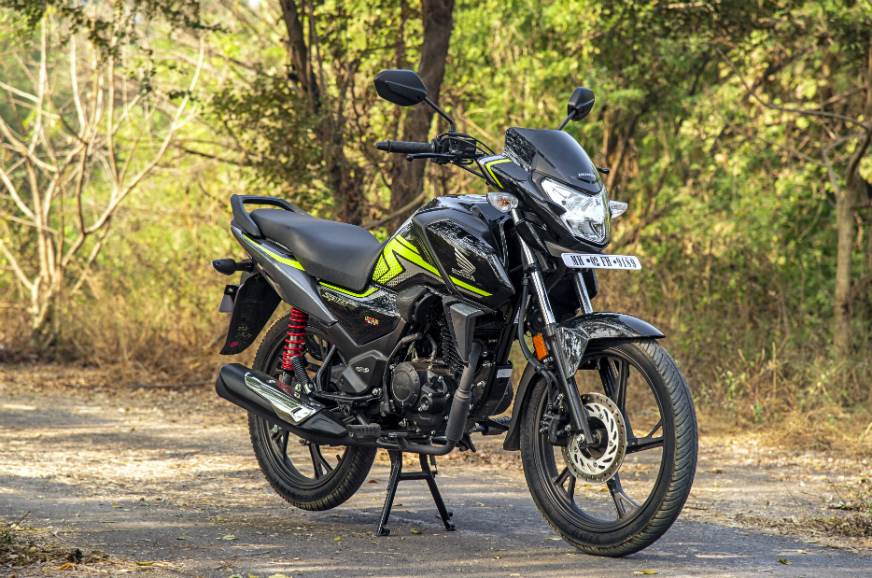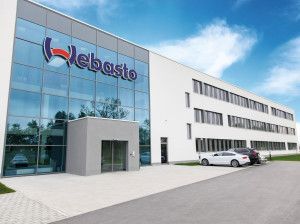Rural market demand drives two-wheeler sales in July

Like the passenger vehicle (PV) market, the two-wheeler segment too is seeing an uptick in sales, which essentially is good news for the industry. Of the five manufacturers, who announced their July 2020 sales numbers, the marked month-on-month growth is proof enough that better days lie ahead for the two-wheeler industry, the most affordable form of motorised transport in the country. Dealer body FADA too has pinned its hope on an industry revival led by rural market demand.
What augurs well for the manufacturers is that, despite the 10-15 percent price increase in products due to the shift to BS6, consumers are going ahead with their purchase decisions. Importantly, it is understood that the first wave of demand is coming from rural India, which is riding on a good monsoon that has set all over the country.
Look at the month-on-month sales growth (see table below) and it’s amply clear that demand is back. This six-manufacturer lot has registered total sales of 12,94,849 units in July 2020, up a sizable 32 percent over June 2020’s 9,80,834 units.
Let’s take a closer look at the manufacturers’ performance.
Hero MotoCorp: 5,14,509 units (1 percent)
Industry leader Hero MotoCorp sold a total of 5,14,509 units of motorcycles and scooters in July 2020, which is a marginal 1 percent growth (July 2019: 5,11,374). This is quite a performance in a market environment that continues to be volatile.
Despite the prevailing economic slowdown on account of the COVID-19 pandemic, the company registered 20 percent growth over the previous month (June 2020: 4,29,493) and reached more than 95 percent of wholesale despatch numbers of the corresponding month in the previous year (July 2019).
The company says its July volumes were driven by strong retail sales due to the positive market demand. While there is cautious optimism on the demand trajectory going forward, sales continue to be impacted by the micro-lockdowns in several parts of the country. For the growth momentum to continue, it is imperative for state and local authorities to provide a stable and consistent business environment as the situation evolves.
Honda Motorcycle & Scooter India: 3,09,332 units (-32 percent)
Honda Motorcycle & Scooter India's total domestic market despatches in July stood at 3,09,332 units, which is a 53 percent increase over June 2020’s despatches 202,837 units. However, compared to the year-ago sales performance (July 2019: 4,55,036), July 2020 numbers are a sizeable 32 percent down.
Yadvinder Singh Guleria, director – sales and marketing, Honda Motorcycle & Scooter India (HMSI ) said, “Meeting market demand with safety and increased efficiency, Honda’s sales momentum continues to accelerate in the three months since resuming operations – jumping 400 percent, from 54,000 in May to 2,00,000 units in June, and now breaching the 3,00,000 mark. Intermittent regional lockdowns across India slowed down the retail momentum gained in June, as the percentage of operational networks dropped to 80 percent in July. With India moving to Unlock 3.0, we are cautiously optimistic of the demand. While the physical inventory level at our dealerships is less than a month’s sales, giving us confidence is the growth in new enquiries on back of increasing acceptability of Honda’s newly launched BS6 models with advanced technology and features.”
HMSI clearly is targeting rural India for sales because in June and July, it has launched two commuter motorcycles – the 2020 CD Dream 110 at Rs 62,729 and the Livo 110 at Rs 69,442.
TVS Motor Co: 2,43,788 units (17 percent)
TVS Motor Company reported dispatches of 2,43,788 units in July 2020, as against 2,08,489 units in July 2019, which is a 17 percent YoY increase. Importantly, it is a 68 percent month-on-month increase over June 2020’s sales of 1,44,817 units. On July 23, the company launched its BS6 Zest 110 with ET-Fi technology, priced at Rs 58,460.
TVS Motor says it resumed its operations from the second week of May 2020 in a graded manner across all its factories in Hosur, Mysuru, and Nalagarh. During Q1 FY2021, the company sold around 2,55,000 two-wheelers (including exports) as against sales of 8,84,000 units reported in the quarter ended June 2019. This includes 1,19,000 motorcycles (Q1 FY2020: 4,17,000 units) and around 82,000 scooters (Q1 FY2020: 2,95,000 scooters). Total exports were 81,000 units compared to 2,09,000 units a year ago.
Bajaj Auto: 1,52,474 units (-11 percent)
Pune-based Bajaj Auto has reported sales of a total of 1,52,474 motorcycles in the domestic market, down 10.82 percent YoY (July 2019: 1,70,978 units). However, seen month on month, this is an improvement because, in June 2020, the company sales had gone down by 26 percent to 1,46,695 units (June 2019: 1,99,340 units).
Even on the year-to-date front, Bajaj Auto has reported improving numbers. In the April-July 2020 period, the sales of 3,38,455 units are down 57 percent on year-ago sales of 7,81,914 units. The rate of decline is slowing when compared to the three-month April-June 2020 period, where domestic sales went down by 70 percent to 1,85,981 units (April-June 2019: 6,10,936 units).
This performance resonates with what Rakesh Sharma, executive director, Bajaj Auto, told our sister publication Autocar Professional in early June: "We've lost two months of sales, but who is to say that two months of sale can’t come back and get recovered in the balance 10 months? That likelihood is there but a lot depends on whether society will be comfortable living with this pandemic or not. We also need to understand this point that it is not that the industry was in a very good shape before COVID-19.
The economic scenario, the burden of the regulation (BS6, ABS, insurance) on the industry, and the additional costs were weighing heavy. Even before COVID-19, we were all preparing for a very tough financial year 2021. If there are stimulus packages, they will hopefully also address not just the COVID-19-related issues, but some of the general economic issues facing the consumer and the industry."
Royal Enfield: 40,334 units (-18 percent)
Royal Enfield posted sales of 40,334 motorcycles in July 2020, against the sales of 49,182 units a year ago, down 18 percent. End-July saw the Chennai-based manufacturer launch ‘Service on Wheels’, a new motorcycle service experience to customers at their doorstep. Under this initiative, Royal Enfield has deployed 800 units of purpose-built Royal Enfield motorcycles across the dealerships in the country.
Suzuki Motorcycle India: 34,412 units (-45 percent)
Suzuki Motorcycle India sold 34,412 units in July 2020, which is a marked decline of 45 percent over July 2019’s 62,365 units but a near-70 percent improvement over June 2020 sales. The company is now gearing up for better performance. “With the unlock phase, the automobile industry is now marching towards normalcy in terms of production, distribution and sales, while continuing to adhere to all the precautionary measures. From August 2020, we will try our best to achieve pre-COVID-19 production and sales volume,” said Koichiro Hirao, managing director at Suzuki Motorcycle India.
While it is early days yet for India Auto Inc and the two-wheeler industry to confirm that they are firmly in growth mode, the latter will be the first to register gains as and when the economy sees an uptick. Rural India is already showing the way with growing demand for tractors and commuter motorcycles.
Sricharan R
Also see:
Bajaj Dominar 250 vs rivals: Specifications comparison



No comments: